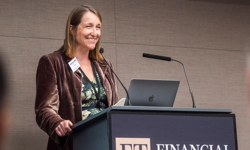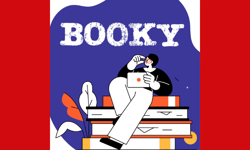Rusbridger (pictured) suggested a new regulator which could offer a quick, cheap and responsive way of resolving cases for news organisations which signed up.
Rusbridger also said that, after the phone-hacking scandal which exposed the widespread fear of the "untouchable" News International, Parliament should spend as much time thinking about issues of market dominance as they currently do about regulating the content of newspapers.
Rusbridger said that the coincidence of the Leveson Inquiry with a new defamation bill gave the press a good opportunity to dovetail new proposals on regulation with widely-shared frustrations at the cost of fighting legal cases.
He said most journalists didn't want the courts, the state, Europe or MPs to regulate the press and asked whether we should instead be proposing a new body which would offer a plausible and effective alternative.
Rusbridger supported Daily Mail Editor Paul Dacre's call for a press Ombudsman who could investigate serious lapses of standards on a "polluter pays" basis. He called for those who signed up to regulation to have advantages in law over anyone who remained outside. And he suggested that a commonly-agreed public interest defence could be used by the mediator to address privacy issues as well as rationalising defences under the criminal law.
On phone-hacking Rusbridger said there had been "an almost willful blindness in British police, press, regulatory and political circles" to acknowledge what had been going on.
He said: "All the forces in civil society that you would normally expect to be engaged in such a situation failed.
"The simplest explanation is a combination of fear, dominance and immunity. People were frightened of this very big, very powerful company and the man who ran it. And News International knew it. They had become the untouchables of British public life."
"There became an unspoken reciprocity about the business and regulatory needs of Mr Murdoch and the political needs of anyone aspiring to gain, or stay in, office. On top of all this, there was – as we now know – a private intelligence operation. No wonder people were frightened of this company and may have decided not to challenge it."
Rusbridger described the UK's current competition and plurality framework as muddled – preventing the Kent Messenger Group from buying seven local papers while nearly allowing the biggest media company in Britain to double in size.
"If the laws are inadequate to the task [of blocking the BSkyB bid] it is, bluntly, time to change our laws and I hope MPs and Peers spend as much time thinking about the issues of market dominance as they currently are about regulating the content and behaviour of the press."
Rusbridger said that the Leveson Inquiry – while it would be asking uncomfortable questions about the press – had already stimulated a good debate about standards and journalism, including from senior judges.
Welcoming the Mail group's decision to print regular corrections and clarifications, he suggested that every newspaper with a staff over more than 100 journalists should have an independent readers' editor.
Rusbridger concluded by saying it was an "incredibly anxious time for journalism, with even the most powerful and professional newspapers clinging on to financial viability."
Pointing out that the best of journalism – Nick Davies's reporting – had driven out the worst, he added: "Over the coming period we'll hear many uncomfortable truths about failed regulation, distorted priorities, illegal practices and a betrayal of both the public and the public interest. But it's also a once in a generation chance to celebrate great reporting, to think again about what journalism at its best can do and what it should be."










